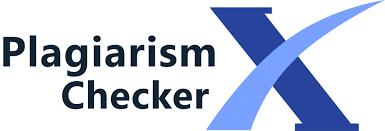LITERASI DIGITAL DALAM PENDIDIKAN ISLAM ANAK USIA DINI: POTENSI DISTRAKSI VS POTENSI EDUKASI
Keywords:
digital literacy, Islamic education, early childhood, educational potential, destructive potentialAbstract
The development of digital technology in the contemporary era presents both challenges and opportunities in the world of education, including early childhood education (PAUD). Young children who are still in the early stages of cognitive development are very vulnerable to exposure to digital content, both educational and distracting. This article aims to analyze the integration of digital literacy in early childhood Islamic education, emphasizing two main aspects: the educational potential that can improve cognitive, language, and creativity skills, as well as instill Islamic values; and the destructive potential, which includes screen addiction, exposure to negative content, reduced social interaction, and threats to character building. This study uses a library research approach by examining primary and secondary literature related to digital literacy, early childhood education, and Islamic education perspectives. The results of the study show that digital literacy can be an effective instrument to support early childhood learning if it is carried out through intensive guidance, selection of appropriate content, restrictions on usage time, and integration with Islamic values. Conversely, without control and guidance, digital literacy has the potential to damage children's development physically, psychologically, and spiritually. This article recommends collaborative strategies between parents, teachers, and the educational environment in optimizing digital literacy to be in line with the principles of Islamic education, which emphasize a balance between intellectual, moral, and spiritual aspects.
Downloads
References
Alia, T., & Irwansyah, I. (2018). Pendampingan Orang Tua pada Anak Usia Dini dalam Penggunaan Teknologi Digital [Parent Mentoring of Young Children in the Use of Digital Technology]. Polyglot: Jurnal Ilmiah, 14(1), 65. https://doi.org/10.19166/pji.v14i1.639
Asmayawati, A. (2023). Can Technology Initiate The Enhancement of Digital Literacy in Early Childhood? Evidence From Indonesia. International Journal of Current Science Research and Review, 06(11), 7210–7219. https://doi.org/10.47191/ijcsrr/v6-i11-25
Awaliana, S., & Ramadhani, R. (2025). Integrasi Literasi Digital dalam Pembelajaran Anak Usia Dini: Analisis Sistematis tentang Dampak dan Strategi Implementasi di Era PostPandemic. Jurnal Euforia, 2(1), 48–57.
Carretero, S., Vuorikari, R., & Punie, Y. (2017). The Competence Digital for Citizens Framework. http://publications.jrc.ec.europa.eu/repository/bitstream/JRC106281/web-digcomp2.1pdf_(online).pdf
Distiliana, D., & Hendriyenti, H. (2025). JOEAI (Journal of Education and Instruction) Volume 8, Nomor 1, Januari–Februari 2025. JOEAI (Journal of Education and Instruction), 8(1), 1–15.
Eshet, Y. (2004). Digital literacy: A conceptual framework for survival skills in the digital era. Journal of educational multimedia and hypermedia, 13(1), 93–106.
Fatimah. (2020). Digital Literacy and Its Relationship to Early Childhood Behavior in PAUD. Kanal: Jurnal Ilmu Komunikasi, 9(1), 28–32. https://doi.org/10.21070/kanal.v9i1.663
Gilster, P., & Glister, P. (1997). Digital literacy. Wiley Computer Pub. New York.
Ginting, E. S. (2021). Penguatan literasi di era digital. Prosiding Seminar Nasional Pembelajaran Bahasa dan Sastra Indonesia (SemNas PBSI)-3, 35–38.
Hill, D., Ameenuddin, N., Chassiakos, Y. R., Cross, C., Radesky, J., Hutchinson, J., Boyd, R., Mendelson, R., Moreno, M. A., Smith, J., & Swanson, W. S. (2016). Media and young minds. Pediatrics, 138(5). https://doi.org/10.1542/peds.2016-2591
Kaynar, N., Sadik, O., & Boichuk, E. (2020). Technology in Early Childhood Education: Electronic Books for Improving Students’ Literacy Skills. TechTrends, 64(6), 911–921. https://doi.org/10.1007/s11528-020-00520-5
Liu, S., Reynolds, B. L., Thomas, N., & Soyoof, A. (2024). The Use of Digital Technologies to Develop Young Children’s Language and Literacy Skills: A Systematic Review. SAGE Open, 14(1), 1–18. https://doi.org/10.1177/21582440241230850
Masoumi, D., & Bourbour, M. (2024). Framing adequate digital competence in early childhood education. Education and Information Technologies, 29(15), 20613–20631. https://doi.org/10.1007/s10639-024-12646-7
Maureen, I. Y., van der Meij, H., & de Jong, T. (2020). Enhancing Storytelling Activities to Support Early (Digital) Literacy Development in Early Childhood Education. International Journal of Early Childhood, 52(1), 55–76. https://doi.org/10.1007/s13158-020-00263-7
Meilasari, D., & Diana, R. R. (2022). Peran Orang Tua Dalam Mengembangkan Literasi Pada Anak Usia Dini. JEA (Jurnal Edukasi AUD), 8(1), 41. https://doi.org/10.18592/jea.v8i1.6364
Piaget, J. (1964). Cognitive Development in Children: Development and Learning. Journal of Research in Science Teaching, 2(3), 176–186.
Purnamasari, L. (2024). Method Digital Learning for Increase Ability Early Childhood Literacy. Journal of Digital Learning and Distance Education, 3(5), 1102–1107. https://doi.org/10.56778/jdlde.v3i5.356
Restianty, A. (2018). Literasi digital, sebuah tantangan baru dalam literasi media. Gunahumas, 1(1), 72–87.
Su, J., & Yang, W. (2024). Digital competence in early childhood education: A systematic review. Education and Information Technologies, 29(4), 4885–4933. https://doi.org/10.1007/s10639-023-11972-6
Syah, R., Darmawan, D., & Purnawan, A. (2019). Analisis faktor yang mempengaruhi kemampuan literasi digital. Jurnal Akrab, 10(2), 60–69.
Windasari, I. W. W., & Dheasari, A. E. (2024). The Role of Parents and Educators in Early Childhood’s Digital Literacy. Electronic Journal of Education, Social Economics and Technology, 5(2), 112–117. https://doi.org/10.33122/ejeset.v5i2.331
Zed, M. (2014). Metode Penelitian Kepustakaan. Yayasan Obor Indonesia.
Downloads
Published
How to Cite
Issue
Section
License
Copyright (c) 2025 Isliyanto

This work is licensed under a Creative Commons Attribution-ShareAlike 4.0 International License.












